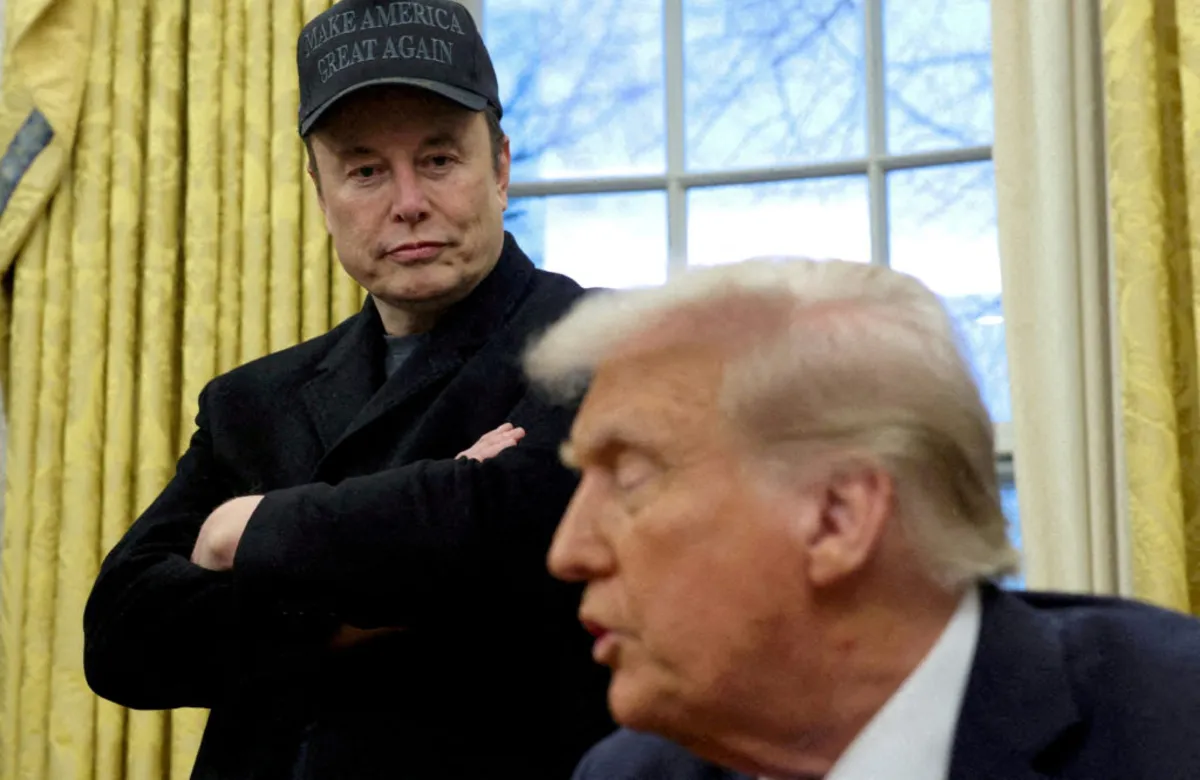
In a surprising turn of events, Elon Musk has publicly criticized the cornerstone of President Donald Trump's legislative agenda, marking a significant shift in their previously strong partnership. This alliance, which began during the 2016 campaign, was anticipated to reshape American politics and the federal government. Musk, a prominent billionaire entrepreneur, has invested over $250 million in support of Trump's candidacy and has served as a senior adviser within the administration.
During an interview with CBS, Musk expressed his disappointment regarding what the President has dubbed his “big beautiful bill.” This legislation is a combination of tax cuts and intensified immigration enforcement, which Musk described as a “massive spending bill.” He argued that it would ultimately increase the federal deficit and “undermine the work” of his initiative, the Department of Government Efficiency (DOGE). His remarks highlight a growing discontent with the direction of the administration's fiscal policies.
In his CBS interview, Musk stated, “I think a bill can be big or it could be beautiful, but I don’t know if it could be both.” This comment underscores his skepticism about the viability of the proposed legislation. The interview aired on Tuesday night, yet White House officials have not responded to inquiries regarding Musk's criticisms.
As Republicans recently managed to pass the legislation through the House, it is currently under debate in the Senate. Musk's critique comes at a time when he is stepping back from his governmental role to focus on his businesses, including Tesla, the electric automaker, and SpaceX, the rocket manufacturer. He has also indicated a desire to reduce his political contributions, stating, “I think I’ve done enough.”
Reflecting on his governmental experience, Musk has expressed a sense of disillusionment. He noted that the challenges within the federal bureaucracy were far more significant than he initially anticipated. “I thought there were problems, but it sure is an uphill battle trying to improve things in D.C., to say the least,” Musk told The Washington Post.
Previously, Musk was vocal about the potential to influence Washington. He actively participated in the political scene by wearing campaign hats in the White House and conducting his own rallies. At one time, he praised Trump saying, “The more I’ve gotten to know President Trump, the more I like the guy. Frankly, I love him.” This camaraderie extended to Trump, who referred to Musk as “a truly great American.”
It remains uncertain what effect Musk's comments will have on the ongoing legislative discussions. His involvement during the transition period saw him rally against a spending proposal as the country faced a potential federal government shutdown. Despite Musk's critiques, Trump continues to wield significant influence within the Republican Party, with many lawmakers hesitant to oppose him.
The Congressional Budget Office has provided a preliminary estimate indicating that the tax provisions included in the bill could increase federal deficits by an astounding $3.8 trillion over the next decade. Conversely, adjustments to Medicaid, food stamps, and other social services may slightly reduce spending by just over $1 trillion during the same period. House Republican leaders assert that anticipated economic growth could render the bill deficit-neutral or even reduce it, though external observers remain skeptical. The Committee for a Responsible Federal Budget estimates that the legislation could add approximately $3 trillion to the national debt, including interest, in the next ten years.
This evolving narrative between Musk and Trump highlights the complexities of political alliances and the challenges of implementing significant legislative changes in the current political climate.